In the age-old debate over food sustainability, few topics evoke as much passion and controversy as the issue of hunting versus buying meat from the supermarket.
On one side, advocates argue that hunting your meat promotes a more ethical and environmentally friendly approach to food consumption. On the other, critics contend that commercial meat production, while absolutely flawed, is still a more practical and sustainable option. In this exploration, we delve into the complexities of both perspectives to shed light on the sustainability of hunting one's own meat compared to hopping down to the Spar to grab a chop or 3.
The Case for Hunting
For many hunters, the act of harvesting their own meat represents a profound connection to nature and the food they consume. They argue that hunting allows for a more humane death for animals compared to the often-criticized conditions of factory farms. By sourcing meat from wild populations, hunters avoid supporting industrial farming practices that are associated with animal cruelty, overuse of antibiotics, and environmental degradation.
Moreover, hunting proponents highlight the sustainability of harvesting wild game. Unlike domestic livestock, which require vast amounts of resources such as water, land, and feed, wild animals are part of a natural ecosystem. When hunted responsibly, they argue, wild populations can actually benefit from proper management practices, including population control and habitat conservation. This symbiotic relationship between humans and wildlife can contribute to the overall health and balance of ecosystems, as it would be in Nature if we weren’t as evolved as we are as a species.
The Environmental Impact of Commercial Meat Production
On the flip side, critics of industrial meat production point to its significant environmental footprint. Factory farming is a major contributor to deforestation, greenhouse gas emissions, and water pollution. The intensive use of land, water, and feed grains for livestock production has led to habitat destruction, loss of biodiversity, and depletion of natural resources.
Furthermore, the transportation and distribution of commercial meat products add to their environmental impact, with emissions from trucks, ships, and planes contributing massively to climate change. The concentration of animals in confined spaces also increases the risk of disease outbreaks, necessitating the use of antibiotics that contribute to antibiotic resistance and pose health risks to both animals and humans.
The Reality of Sustainable Hunting
While hunting may offer certain environmental and ethical advantages over commercial meat production, it is not without its own challenges and controversies. Critics point out that irresponsible hunting practices, such as over-harvesting or targeting endangered species, can have detrimental effects on wildlife populations and ecosystems. Additionally, the use of firearms and other hunting equipment carries inherent safety risks and ethical considerations.
Moreover, the sustainability of hunting depends largely on factors such as regulations, enforcement, and individual ethics. Without proper oversight and adherence to conservation principles, hunting can contribute to declines in wildlife populations and disrupt delicate ecological balances. As such, sustainable hunting requires a commitment to ethical hunting practices, habitat conservation, and wildlife management.
The Role of Consumer Choice
In the debate between hunting and commercial meat production, it is essential to recognise the role of consumer choice in driving change. While hunting may not be a feasible option for everyone, consumers can still make informed decisions to support more sustainable meat sources. This includes selecting meat from producers that prioritize animal welfare eg: Frankie Fenner Meat Merchants right here in Cape Town, environmental stewardship, and ethical treatment throughout the supply chain.
Furthermore, advocating for policies and practices that promote sustainable agriculture, conservation, and wildlife management can help address the systemic issues inherent in our food system. By supporting initiatives such as regenerative farming, local food networks, and habitat restoration efforts, consumers can contribute to a more sustainable and resilient food system.
Conclusion
In the quest for sustainability in meat sourcing, there is no one-size-fits-all solution. Both hunting and commercial meat production have their merits and drawbacks, and the choice between them ultimately depends on individual values, preferences, and circumstances. However, by fostering a greater awareness of the environmental, ethical, and social implications of our food choices, we can work towards a more sustainable future for both ourselves and the planet. Whether through hunting, supporting ethical producers, or reducing meat consumption altogether, each of us has the power to make a difference in shaping the future of food.











